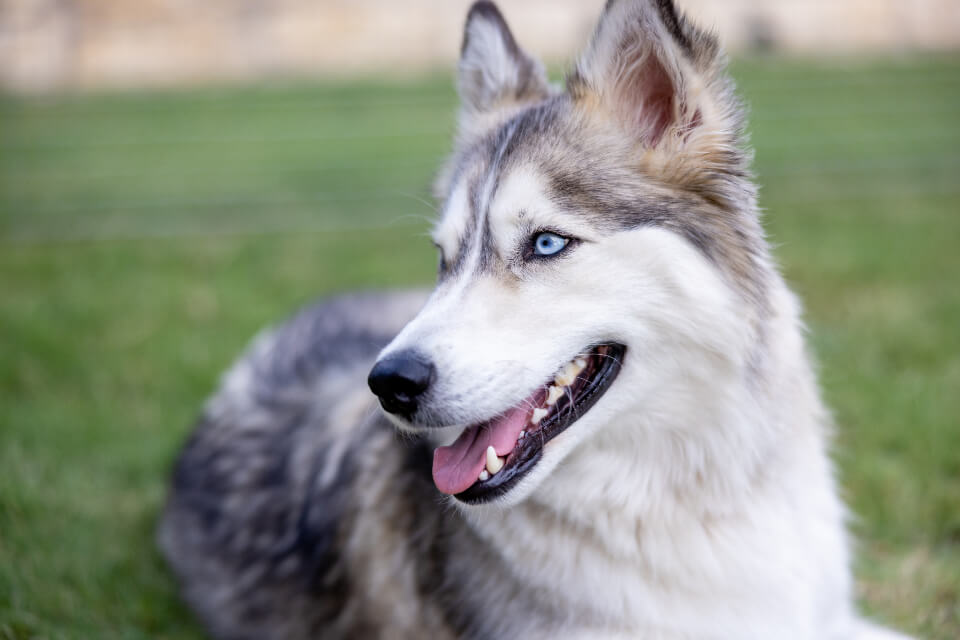How to choose the best dog food for Huskies
The proper dog food selection for your Husky is necessary to guarantee they live a healthy and active life. Huskies are unique in their dietary needs, requiring a well-balanced combination of premium proteins, good fats, and necessary vitamins and minerals. This blog aims to guide you regarding how to choose the best dog food for Huskies, considering their specific nutritional requirements.
Huskies are known for their energy and stamina, which means they need a diet that supports their high activity levels. Unlike other breeds, Huskies have a higher metabolism and unique dietary needs, making it crucial to select food that meets these demands. The incorrect kind of food might have negative impacts on health issues such as poor coat condition, digestive problems, and even obesity.
In this blog, we will delve into the factors you need to consider when choosing the best dog food for Huskies. From understanding their nutritional needs to evaluating different types of dog food, we will cover everything you need to know. Our goal is to help you make an informed decision that ensures your Husky thrives and stays healthy. So, let’s explore how you can provide the best diet for your beloved pet.
Understanding Husky Dietary Needs: How to Choose the Best Dog Food for Huskies
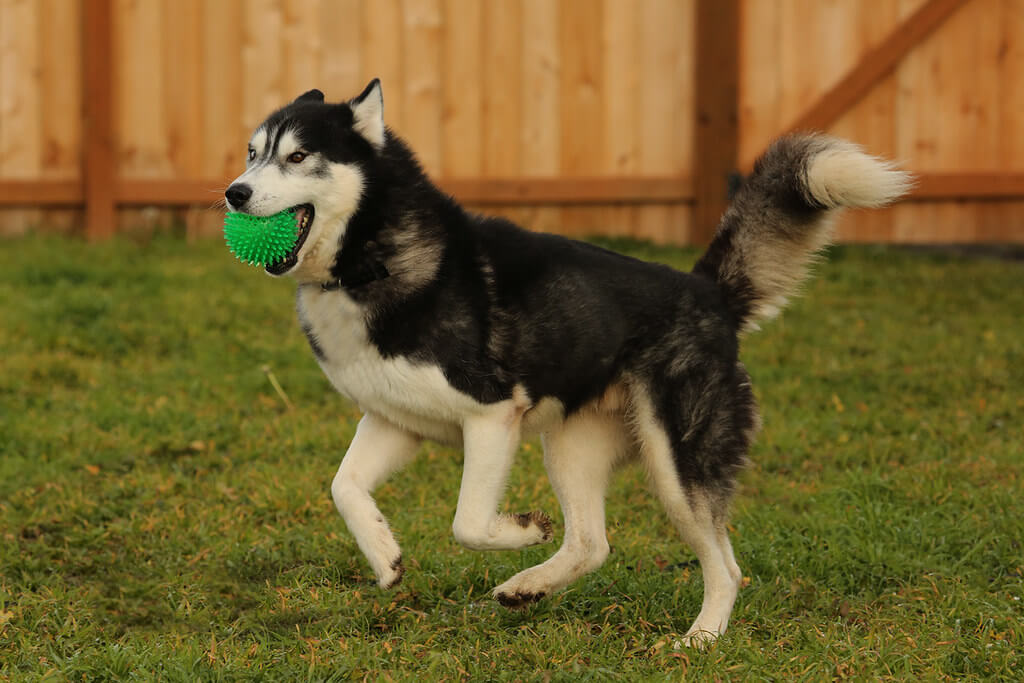
Huskies are energetic and active dogs, so They a diet that will allow them to maintain their high amounts of energy. A Husky’s food should be well-balanced, with an appropriate proportion of carbs, fats, proteins, and vitamins and minerals. Understanding these nutritional requirements is key to keeping your Husky healthy and happy.
Importance of protein-rich diet
Proteins are the most crucial part of a Husky’s diet. They supply the building blocks needed for the growth and repair of muscles, which is essential for an active breed like Huskies. Fish, poultry, and other high-quality protein sources like beef should be the main ingredients in their food. A diet rich in protein helps maintain your Husky’s lean muscle mass and overall strength.
Role of fats and carbohydrates
Fats are another vital component of a Husky’s diet. They offer a focused energy source that is necessary for their high activity levels. Good fats, such as fatty acids with omega-3 and omega-6 chains, also support skin and coat health. While carbohydrates are less critical than proteins and fats, they still play a role in providing quick energy. Carbohydrates should come from quality sources like whole grains or vegetables.
Necessary vitamins and minerals
Vitamins and minerals are essential for a Husky’s overall health. They support various bodily functions, including immune system health, bone strength, and metabolic processes. Key vitamins include A, D, E, and B-complex vitamins, while important minerals include calcium, phosphorus, and potassium. Ensuring your Husky’s diet includes these nutrients will help keep them healthy and vibrant.
Understanding these dietary needs will help you choose the best dog food for your Husky, ensuring they get all the nutrients they need to thrive.
Types of Dog Food for Huskies
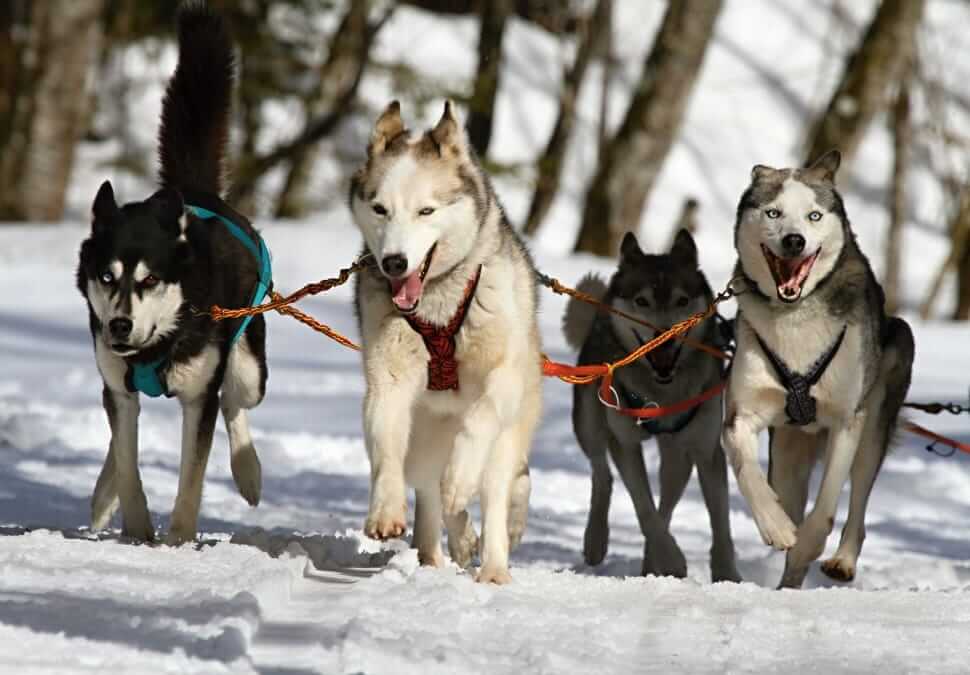
Dry dog food (kibble)
Dry dog food, or kibble, is among the most well-liked options for feeding Huskies. It has a long shelf life, is practical, and is simple to store. Kibble helps keep your dog’s teeth clean by reducing plaque buildup. However, not all kibbles are created equal. It’s important to choose high-quality kibble with good protein sources and minimal fillers.
Wet dog food (canned)
Wet dog food, or canned food, is another option for feeding your Husky. Its increased moisture content may be beneficial to keep your dog hydrated. Wet food is often more palatable for picky eaters. However, it is more expensive than kibble and needs to be refrigerated once opened. It can also contribute to dental issues if used exclusively.
Raw diet
A raw diet includes uncooked meat, bones, and organs, mimicking what dogs might eat in the wild. Proponents of raw diets believe it can improve coat condition, energy levels, and overall health. However, preparing a raw diet requires careful planning to ensure it’s nutritionally balanced. Additionally, there is a chance of bacterial infection; It may be dangerous to people as well as pets.
Homemade dog food
Making your dog food at home gives you complete control over what your Husky eats. You can use fresh, high-quality ingredients tailored to your dog’s specific needs. However, creating a balanced homemade diet requires a thorough understanding of canine nutrition. It can be time-consuming and often more expensive than commercial options.
Comparison of pros and cons of each type
Every kind of dog food has benefits and drawbacks.
- Dry dog food (kibble):
- Pros: Convenient, long shelf life, helps with dental health.
- Cons: It can contain fillers with lower moisture content.
- Wet dog food (canned):
- Pros: High moisture content, appealing to picky eaters.
- Cons: More expensive, can contribute to dental issues, needs refrigeration.
- Raw diet:
- Pros: Mimics’ natural diet can improve coat and energy levels.
- Cons: Requires careful preparation, risk of bacterial contamination, can be expensive.
- Homemade dog food:
- Pros: Complete control over ingredients tailored to the dog’s needs.
- Cons: Time-consuming, requires nutritional knowledge, and can be costly.
Knowing the various kinds of dog food can assist you in making an informed decision on the best option for your Husky.
Ingredients to Look for in the Best Dog Food for Huskies
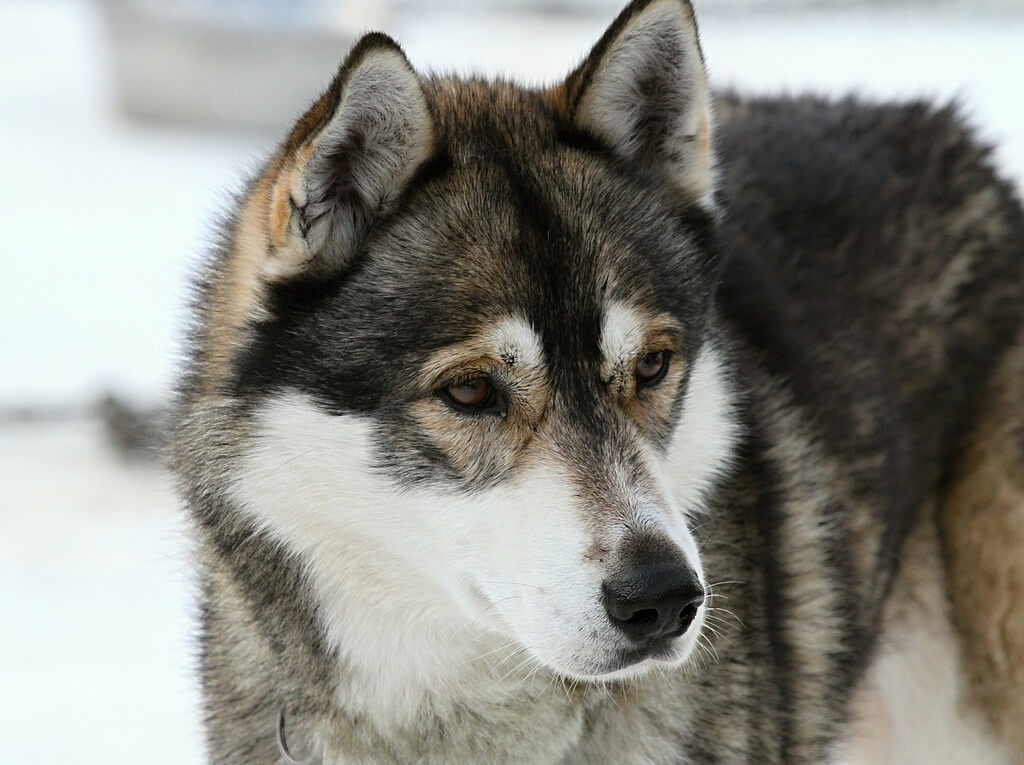
High-quality protein sources (e.g., chicken, beef, fish)
Proteins are the cornerstone of a Husky’s diet. Seek dog foods with an excellent source of protein listed, like chicken, beef, or fish, as the first ingredient. These proteins are essential for muscle development, energy, and overall health. Avoid dog foods with vague labels like “meat meal” or “by-products,” since they could not be as high-quality.
Whole grains vs. grain-free options
Whole grains and grain-free options each have their benefits. Whole grains, such as brown rice and oats, provide a good source of carbohydrates and fiber, which can aid in digestion. However, some Huskies may have sensitivities to grains. For these dogs, grain-free options using sweet potatoes, peas, or lentils as carbohydrate sources can be better. It’s important to choose based on your dog’s individual tolerance and health needs.
Healthy fats (e.g., omega-3 and omega-6 fatty acids)
Healthy fats are vital for a Husky’s diet, providing a dense source of energy and supporting skin and coat health. Seek for dog diets that have fatty acids (omega-3 and omega-6) often found in ingredients like fish oil, flaxseed, and chicken fat. These fats help maintain a shiny coat and healthy skin, and they also support brain and heart health.
Essential vitamins and minerals
Vitamins and minerals are crucial for your Husky’s overall health. Key vitamins include vitamin A for vision and immune function, vitamin D for bone health, and vitamin E for skin health. Important minerals include calcium and phosphorus for strong bones and teeth and potassium for muscle function. Ensure the dog food you choose is fortified with these essential nutrients to support your Husky’s well-being.
Avoiding artificial additives and fillers
Artificial additives and fillers are unnecessary ingredients that can be harmful to your Husky’s health. Artificial flavors, colors, and preservatives are examples of additives that cause allergic reactions and other health issues. Fillers, such as corn, soy, and wheat, offer little nutritional value and are often used to bulk up the food cheaply. Look for dog foods that are free from these artificial ingredients and fillers, focusing instead on natural, whole-food ingredients.
By focusing on these high-quality ingredients, you can ensure that your Husky receives the nutrition they need to stay healthy and active.
Reading Dog Food Labels
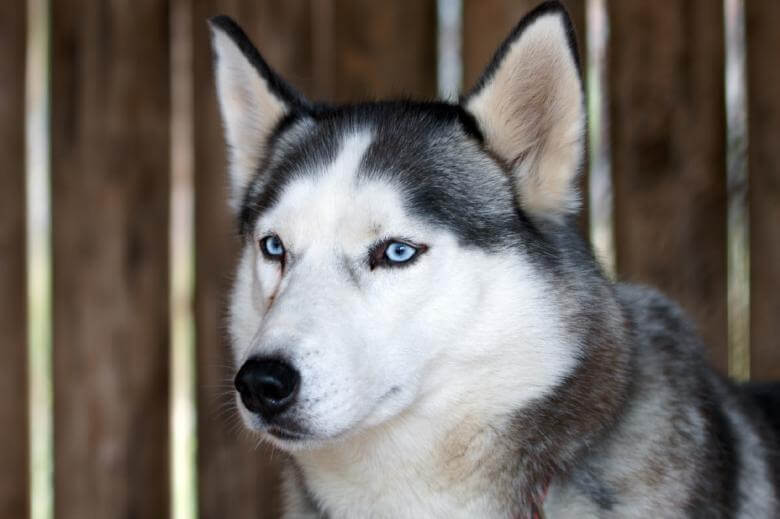
How to interpret ingredient lists
Interpreting ingredient lists on dog food labels is crucial for ensuring you’re selecting a high-quality product for your Husky. The ingredients are shown in decreasing weight order. Suggested initial ingredients: premium protein sources, such as fish, steak, or chicken. Avoid foods with vague terms like “meat meal” or “by-products,” as these are often lower-quality proteins. Look for whole grains, vegetables, and fruits, and steer clear of artificial additives and fillers like corn, soy, and wheat.
Understanding guaranteed analysis
Information on the dog food’s nutritional composition, including the lowest and highest quantities of unprocessed protein and fat, is provided by the guaranteed analysis of fiber and moisture. This analysis helps you compare different dog foods to ensure they meet your Husky’s nutritional needs. For example, high-quality dog food should have a good balance of protein and fat with moderate fiber content. Ensure the food also includes essential vitamins and minerals.
Recognizing quality certifications and standards
Quality certifications and standards are indicators of a dog food’s overall quality and safety. Seek certificates from respectable establishments like the Association of American Feed Control Officials (AAFCO). AAFCO standards ensure that the dog food is nutritionally balanced and complete for your Husky’s life stage.
Additional certifications to search for consist of USDA Organic, Non-GMO Project Verified, and labels indicating human-grade ingredients. These certifications help you choose a dog food that satisfies strict safety and quality requirements. Knowing how to interpret dog food labels will enable you to make knowledgeable choices regarding the best food for your Husky, ensuring they receive the proper nutrition for a healthy and active life.
Special Considerations for Husky Puppies, Adults, and Seniors
Nutritional needs at different life stages
Husky puppies, adults, and seniors have different nutritional needs. Making informed decisions about dog food will be possible for you if you understand how to read the labels and development. Their food should be rich in nutrients that promote bone and muscle growth. Adult Huskies need a balanced diet that maintains their energy levels and overall health.
Senior Huskies, on the other hand, may require fewer calories and more fiber to support their slowing metabolism and digestive health. Foods for seniors should also include joint-supporting nutrients like glucosamine and chondroitin.
Appropriate portion sizes and feeding frequency
Portion sizes and feeding frequency vary based on your Husky’s age and activity level. Puppies typically need to eat more frequently, around three to four times a day, to fuel their growth and energy. As they mature into adults, two meals a day are usually sufficient.
For seniors, two smaller meals can be easier on their digestion. It’s important to measure portions carefully to Refrain from overfeeding, as this might result in obesity and other health problems. According to the feeding recommendations on the dog food container, make any necessary adjustments. Husky’s weight and activity.
Adjusting diet for activity level and health conditions
Huskies are known for their high energy levels, but individual activity levels can vary. Active Huskies that participate in regular exercise or work activities may need a diet higher in calories and protein to sustain their energy. Conversely, less active Huskies will require fewer calories to prevent weight gain.
Additionally, specific health conditions may necessitate dietary adjustments. For instance, Huskies with allergies or sensitivities might need a hypoallergenic diet, while those with joint issues may benefit from foods fortified with omega-3 fatty acids and joint supplements.
By understanding these special considerations for Husky puppies, adults, and seniors, you can ensure that your dog receives the appropriate nutrition throughout their life stages, promoting health and longevity.
Common Dietary Issues in Huskies
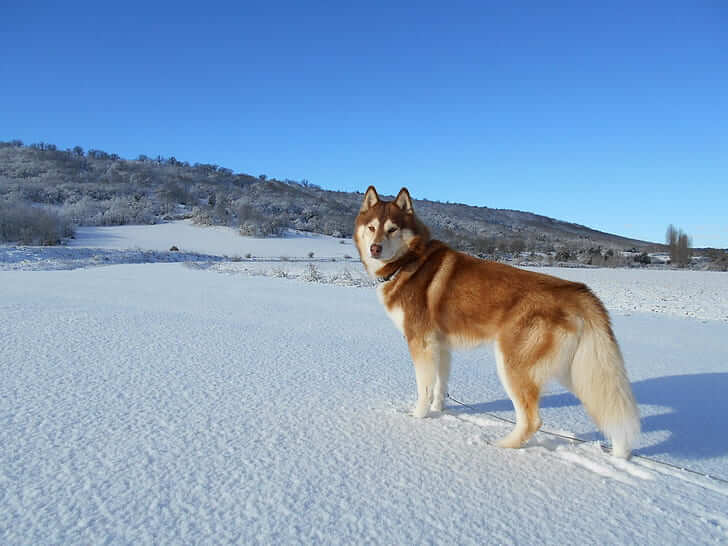
Allergies and food sensitivities
Huskies can be prone to allergies and food sensitivities. Common allergens include ingredients like beef, chicken, dairy, wheat, and soy. Food allergies can cause anything from skin irritations to itching to gastrointestinal issues such as vomiting and diarrhea.
If you suspect your Husky has a dietary sensitivity, it is crucial to speak with your veterinarian. They might advise an elimination diet to find the offending ingredient. Once identified, choosing hypoallergenic dog food or one with alternative protein sources can help manage these sensitivities.
Digestive problems
Digestive problems are another common issue in Huskies. They may experience problems like diarrhea, constipation, or bloating due to various reasons, including dietary changes, stress, or consuming inappropriate foods.
High-fiber diets can help maintain regular bowel movements and prevent constipation. Additionally, probiotics can support a healthy gut flora, aiding in digestion. It is crucial to gently introduce new foods to prevent disturbing your Husky’s stomach and to stick to a consistent feeding schedule.
Weight management
Weight management is crucial for maintaining a Husky’s overall health. Huskies are naturally lean and active dogs, but they can still gain excess weight if overfed or under-exercised. A number of health issues can result from obesity, including joint issues, heart disease, and diabetes.
To manage your Husky’s weight, provide a balanced diet with the right amount of calories for their activity level. Regular exercise is also essential to help burn off excess calories. Monitor your Husky’s weight regularly and modify their food consumption as necessary to keep a healthy weight.
By being aware of these common dietary issues in Huskies and addressing them proactively, You have the power to keep your dog happy and healthy.
Expert Recommendations
Consulting with veterinarians and canine nutritionists
Consulting with veterinarians and canine nutritionists is essential when choosing the best dog food for your Husky. These professionals can offer tailored guidance depending on your Husky’s age, weight, activity level, and any health conditions they may have.
Veterinarians can recommend specific diets and brands that cater to your dog’s unique needs, while canine nutritionists can help create balanced meal plans if you prefer homemade diets. Regular check-ups with your vet also ensure that your Husky’s diet continues to meet their nutritional requirements as they age or if their health status changes.
Reviewing top-rated dog food brands for Huskies
Reviewing top-rated dog food brands for Huskies can help you make an informed choice. Brands that consistently receive high ratings for quality and nutrition include those that use high-quality protein sources, avoid artificial additives, and provide balanced nutrition.
Look for brands that veterinarians and canine nutritionists recommend. Some of the top-rated brands include Royal Canin, Blue Buffalo, Wellness, and Orijen. These brands offer specialized formulas designed to meet the specific needs of Huskies from puppyhood to senior years.
Real-life experiences and testimonials from Husky owners
Real-life experiences and testimonials from Husky owners can offer insightful information on what functions effectively for this breed. Many Husky owners share their experiences on forums, social media groups, and review websites.
These testimonials can highlight the practical benefits and potential drawbacks of different dog foods based on first-hand experience. Hearing from other Husky owners about how certain brands or diets have positively impacted their dogs’ health, energy levels, and coat condition can help you make a more informed decision.
By combining expert advice, brand reviews, and real-life experiences, you can choose the best dog food for your Husky, ensuring they receive the nutrition they need to thrive.
DIY Dog Food Recipes for Huskies
Simple and nutritious homemade dog food recipes
Making your dog food at home might be a healthy choice, Husky, allowing you to control the quality of ingredients and avoid artificial additives. Here are a few easy yet wholesome recipes:
- Chicken and Vegetable Stew
- Ingredients:
- 1 ½ cups of chicken breast, cooked and diced
- 1 cup of carrots, chopped
- 1 cup of green beans, chopped
- ½ cup of peas
- ½ cup of sweet potatoes, diced
- 2 cups of low-sodium chicken broth
- Instructions:
- Put all the ingredients in a big pot and cook over medium heat.
- Simmer until the chicken is cooked through and the vegetables are soft.
- Let cool before serving.
- Ingredients:
- Beef and Rice Mix
- Ingredients:
- 1 pound of ground beef
- 1 cup of brown rice
- 1 cup of carrots, finely chopped
- 1 cup of spinach, chopped
- 2 ½ cups of water
- Instructions:
- The ground meat should be cooked in a skillet until browned. Add the carrots and cook until tender.
- After adding the rice, bring to a boil and water, stirring. Simmer the rice over low heat until it is done.
- Add spinach and cook for another few minutes.
- Let cool before serving.
- Ingredients:
Balancing home-cooked meals with commercial dog food
Balancing home-cooked meals with commercial dog food ensures that your Husky receives complete and balanced nutrition. While homemade meals allow you to control ingredients, they might lack some essential nutrients. Here’s how to balance the two:
- Supplement Homemade Meals: If you feed your Husky homemade food, consider adding a high-quality commercial dog food as a supplement to ensure they get all the necessary vitamins and minerals. Use commercial food as a topping or mix it into their homemade meal.
- Consult with a Nutritionist: A canine nutritionist can help you create a balanced meal plan that includes both homemade and commercial food. They can recommend specific supplements to add to your homemade meals to fill any nutritional gaps.
- Monitor Your Husky’s Health: Regularly check your Husky’s health with your veterinarian to ensure that their diet is meeting all their nutritional needs. Adjust the balance of homemade and commercial food as necessary based on their health and activity level.
By combining nutritious homemade recipes with high-quality commercial food, you can provide a well-rounded diet that supports your Husky’s health and well-being.
YOU MAY ALSO LIKE:
How to Treat Dog Food Poisoning at Home
How Much is Sunday’s Dog Food?
How Much is Ollie Dog Food in a Month?
How to Choose Dog Food
How Much Pumpkin to Add to Dog Food
How Much Does Farmers Dog Food Cost?
How Long Can Wet Dog Food Sit Out?
How to Soften Dog Food
How to Keep Dogs Out of Cat Food
How to Give Dog Pills Without Food
How to Get my Dog to Eat Dry Food
How to Keep Ants Out of Dog Food
How Much Does Dog Food Cost
How Long to Soak Dog Food
How Much Homemade Dog Food to Feed
How Much Wet Food to Feed a Dog
How to Transition Dog Food
How to Stop Food Aggression in Dogs Towards Other Dogs
How many cups of food should I feed my dog?
How to Stop Food Aggression in Dogs
How Many Cups in a Pound of Dog Food
How Long Does it Take a Dog to Digest Food
Why is My Dog Always Hungry
How Much Protein is in Dog Food?
How to Make Dog Food
how long to feed dog puppy food
What is The Cost to Make Homemade Dog Food?
How to Make Homemade Raw Dog Food
How to Make Homemade Dry Dog Food
How to Prepare Dog Food at Home for Senior Dogs
How to Train a Dog That is Not Food-Motivated
How Much Food Should I Feed
How To Store Dog Food
How Much Time Can a Dog Survive Without Consuming Water
How Long Can a Dog Survive Without Food?

